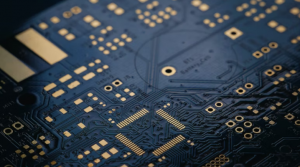Windows 8 tablets Take Aim at Choice, not Competition
One of the more irritating traits about tech punditry are the seemingly endless opinions on how the new Product A is going to kill the older Product B, or not, depending on the writer’s biases.![]()
Of course when it comes to biases in the tech blogosphere, none is bigger than the bias against Microsoft, and anything it does. The so-called discussion going on around Windows 8 and the tablet PC form factor is a good example of that.
It’s understandable of course that the most common negative point regarding this new interface is that it includes the “standard” Windows desktop interface as well as the new Metro interface. The consensus is that Microsoft is making a big mistake by including the standard Desktop interface, they should make the tablet a strictly Metro user interface say the pundits; much like this post from The Next Web:
Honestly the best thing that Microsoft could do for itself here is to limit the appearance of the Desktop app at all to a special subset of tablets. Call them ‘Windows 8 Pro’ or whatever you must, but keep them out of the hands, and more importantly, the minds of the majority of consumers.
This is understandable given that for the past year and a half we have only had the iPad as the tablet gold standard to go by. There is no denying that the iPad is a gorgeous piece of hardware and an boasts an outstanding user experience, but as the Android versions of the tablet PC have shown it is not the only one. Yet the idea that users should be restricted to a narrow scope of usage ala the iPad philosophy is shortsighted.
The Windows 8 tablet isn’t about competing with the iPad, or even Android tablets, but it is all about providing a viable alternative to those two. Just as there are usage cases for the restrictive user interface of the iPad, and less so Android, there is also an even larger usage case for what Microsoft is proposing; or at least what we think it is proposing.
As Steven Sinofsky pointed out at this year’s Build keynote there are expected to be some 400 million Windows 8 users, and even if only 10% of them want a full featured Windows 8 experience on a tablet PC form factor Microsoft would be stupid not to make that available. That is 40 million users who for whatever reason didn’t want to use an iPad or Android tablet.
Say what you will but a bare minimum percentage of 10% of the larger Windows market; many of whom would probably already own a Windows machine of one type or another, that still puts it at more than the 15 million that Apple sold of the iPad2 by March of 2011 (one should note that Apple has reportedly cut back on its fourth quarter order of iPads by 25%).
Microsoft doesn’t need to compete with Apple, that notion is merely the dreamy-eyed wishful thinking of tech pundits. What Microsoft does need to do is to make sure that its vision of the future of personal computing does its very best to appeal to its already existing userbase. By ignoring the desktop on the tablet PC form factor they would be doing a very large segment of its customers a disservice.
As Chase Razabdouski at Examiner.com writes:
Microsoft has an ace in the hole here. Windows 8 isn’t an attempt to compete with iOS and Android Honeycomb. Instead, it is a fundamental change in course responding to both the immediate and future demands of computing. Let us remember that Windows 8 is a full-blown OS being introduced into the touch-market, not a feature-limited OS scale-down for convenient use on less powerful devices… ahem, iPad.
This isn’t about competing. This is about providing a viable alternative and the only thing left is to see if Microsoft has created a compelling enough alternative to the iPad.
[Cross-posted at Winextra]
A message from John Furrier, co-founder of SiliconANGLE:
Your vote of support is important to us and it helps us keep the content FREE.
One click below supports our mission to provide free, deep, and relevant content.
Join our community on YouTube
Join the community that includes more than 15,000 #CubeAlumni experts, including Amazon.com CEO Andy Jassy, Dell Technologies founder and CEO Michael Dell, Intel CEO Pat Gelsinger, and many more luminaries and experts.
THANK YOU













